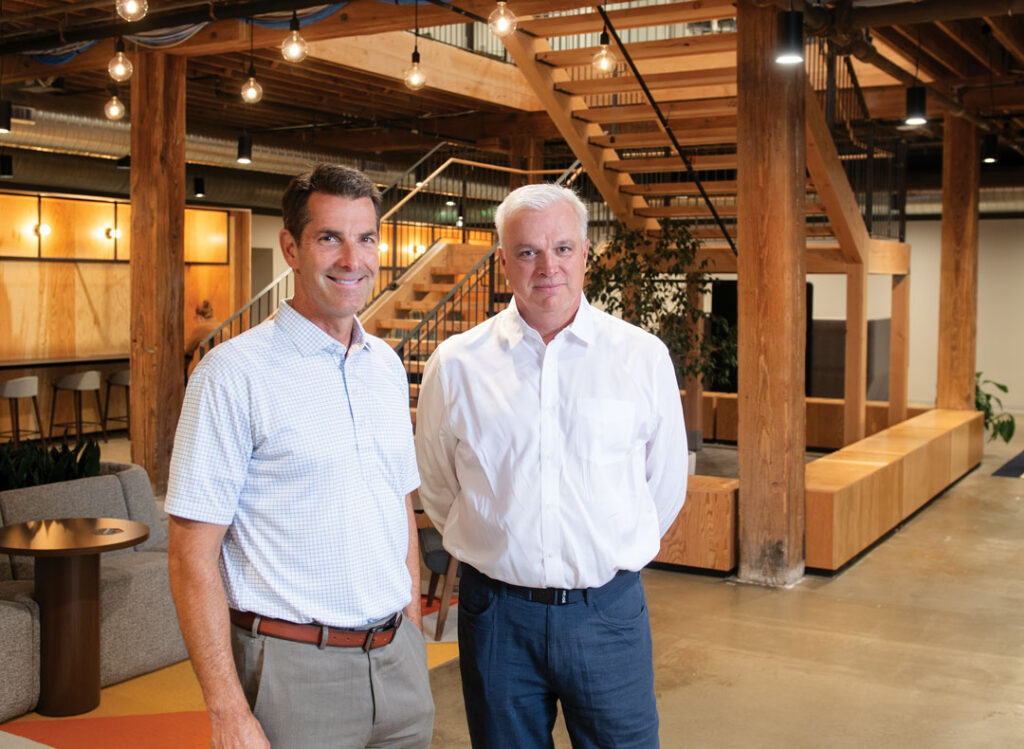A Closer Look: Randy Evans
Executive director, Iowa Freedom of Information Council

SUZANNE BEHNKE May 23, 2018 | 2:03 pm
5 min read time
1,247 wordsBusiness Record Insider, Government Policy and LawRandy Evans spent more than 40 years prepping for the work he currently performs as executive director of the Iowa Freedom of Information Council, defending and protecting and speaking out for the state’s open records law.
For most of his career, Evans logged long hours as an editor for the Des Moines Register. His journalistic training began earlier as a teenager in the southern Iowa town of Bloomfield, located in Davis County, hovering just above Missouri. He attended the University of Iowa to further his studies in the news business. He started at the Register as a reporter in Des Moines and later spent four years at the Davenport bureau. He eventually returned to Des Moines and mentored hundreds of reporters. Evans supervised every newsroom department at one time or another, except sports. “I didn’t know the score,” he said.
To his colleagues, he’s known for his commitment to newspapering, his precision editing skills, his deep knowledge of all things Iowa, and his many turns of phrases. I, and dozens of other young journalists, lucked out working for and learning from him. Despite retiring a few years ago, Evans still adds to his life’s work. He writes a weekly column that appears in the Bloomfield Democrat and other publications, including a few in the Business Record. He also found a new calling as the director of the FOI Council.
Evans, more than two years into his job, agreed to sit down for an interview to explain what he’s done and is doing, what the Freedom of Information Council is and does, and why that matters to the business community.
I think I am aware of most of your jobs at the Register. Didn’t you start in the Quad Cities?
No, but I spent four years in the Quad Cities. I was hired {at the Register} in 1974. I interviewed on the day that Richard Nixon resigned. You know, Michael Gartner and Dave Witke never would have hired me if they’d had time to do a regular in-depth job interview. They just kind of felt for a pulse and said, “We’ll get back to you.”
But in the 40 years, I had incredible opportunities there. I spent time as a reporter and in various editing roles. … I said I never got any job that I sought and never sought any job that I got at the Register.
I spent four years as opinion editor, and it was certainly a change. Because for 36 of my years I took great pains to avoid having opinions about anything. The only place I was allowed to express an opinion was at home. After I got married, even that was suspect.
When you left the Register, did you have an inkling of what was next for you?
No. I’ve been involved with the council for much of its now 41 years of existence. I had served as one of the Register’s representatives, I served as president. The issues the council takes on are ones that are very near and dear to my heart, even predating the Register. I’ve long thought government officials mistakenly think the government belongs to them rather than belonging to the people. Lots of people run for government office and like to talk about how they believe in transparency. But once they get elected, suddenly transparency becomes something that is inconvenient. It’s more convenient to run government like it was a private business. This is not a political thing; there are R’s and D’s and independents who feel the same way. They are big believers in transparency until it’s their turn to be in charge. And then they aren’t quite as comfortable with the notion of the public wanting to see things and participate in meetings or monitor issues as they develop. I say that the director of the FOI Council will never run out of work because I see the trends not getting better, they are getting worse.
You are writing columns; you are speaking and training. Are you a one-man operation?
We have a board of trustees. We have a growing membership roll, which makes things easier [membership is in the high 30s]. One of the roles of the FOI Council’s director is to educate the public about what the open meetings and open records law allows them to do. It’s their government. It’s also educating government officials, helping them understand the important role the public has in all this. It’s a lot easier to get the public to support government initiatives if people feel like they have a voice in it. … If there isn’t an organization like the FOI Council, I worry that you know it’s going to be hard for anyone to speak up and stop some of this creeping secrecy. The FOI Council’s credibility or its clout doesn’t come from me, it comes from all of the 37, 38 members and the respect they have across the state. It’s harder for one individual person to change government. I hope the FOI Council is able to help government officials keep the public in mind.
If I’m a businessperson in Des Moines, why does the FOI Council’s work matter to me?
I think it affects every citizen at one point or another. Every case we get involved in may not be deeply meaningful to the business leader, but I think that business leaders, they often partner with local governments to take on projects and initiatives, and if the public knows that they, the public, can attend meetings, can read government reports and can monitor their local government, I think they are more apt to support these initiatives and projects that government leaders are encouraging. I think the openness dispels any sense of secret deals are being cut. I think business leaders are savvy enough to understand that getting the public engaged is going to help the community much more so than if the public is ignoring it because they think they have no voice because they think the deals are being struck without public engagement. …
The other thing is business leaders are also taxpayers, they are family members, their kids go to the schools, they live in communities. They have reason to be concerned beyond their day job. …
The FOI Council isn’t trying to muck up economic development deals that are in the works. If the Iowa Economic Development Authority is negotiating with a major business entity with a community in the Des Moines metro area with a project that could bring a certain number of jobs, I understand the competitive pressures that economic development officials are facing.
What compels you to keep working despite allegedly being in retirement?
One of the things as you get older, you start seeing the bigger picture of what your parents were doing. When you’re a kid you want chocolate milk, not white milk. Why do we have to have liver and onions? So my parents, they never traveled the world; they worked hard, they had three boys who all graduated from college. I think I would be disappointing them if I were taking the easy way through life. That is not something I would want to do. I am not wired to sit at home and read fishing magazines. Not that there’s anything wrong with that.
Have you ever gone fishing?
Oh, I don’t have the patience for it. I never would have made a good physician. … I don’t have the patients. Ba-dum ching.








